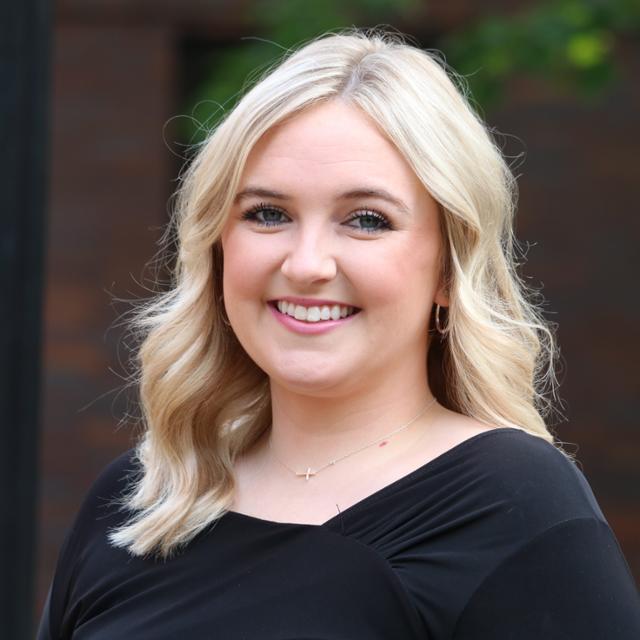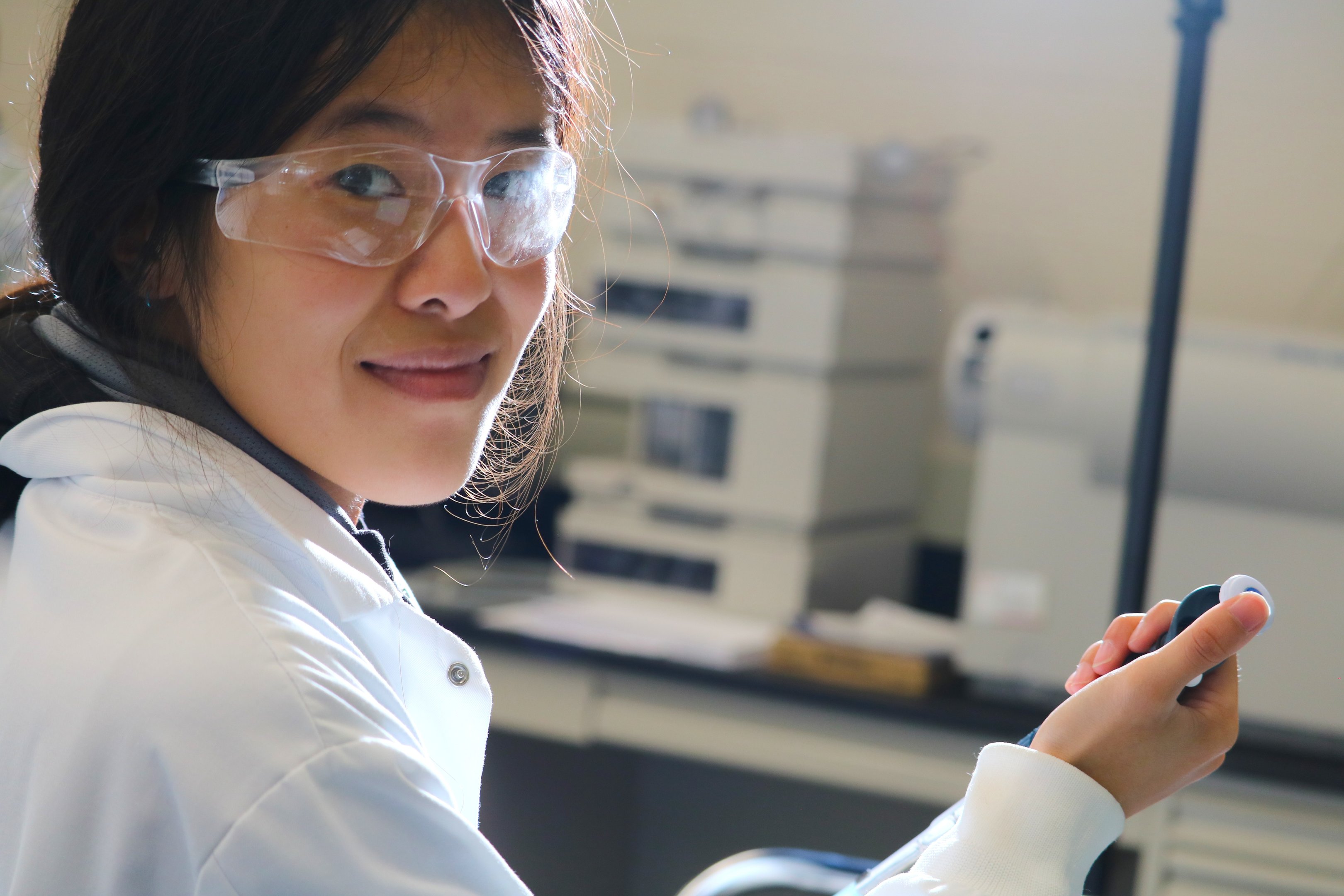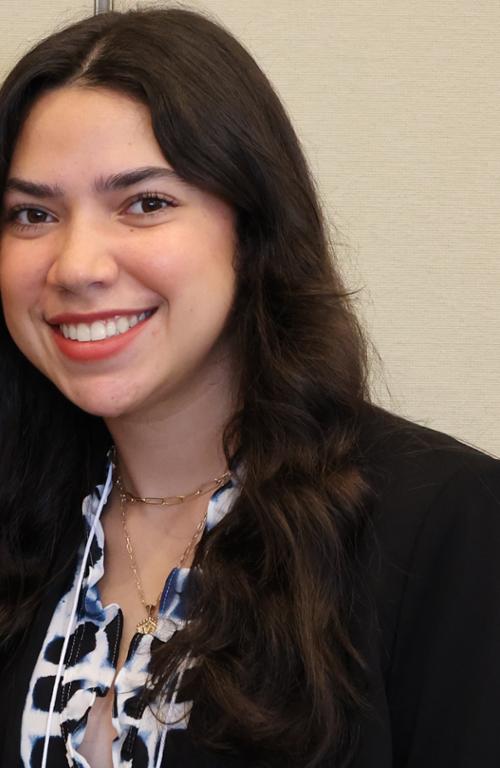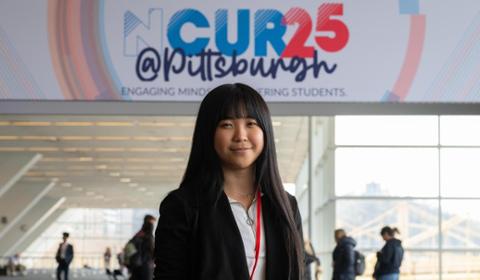Biochemistry
Students pursuing the Bachelor of Science degree in biochemistry seek a strong and solid foundation in both chemistry and biology. You will develop technical and analytical science skills you can apply in real-world settings through hands-on lab work. Faculty mentoring, experiential learning opportunities, travel and carefully selected internships prepare you for your future careers. Join a department with an outstanding record of student acceptance into medical, graduate schools and other pre-professional programs.
How can you use this degree?
A degree in biochemistry opens a wide range of career opportunities across various fields like biomedicine, biotechnology, pharmaceutics, food science, agriculture, healthcare, education and forensics. Graduates typically work in laboratories and offices to conduct experiments and analyze the results including, but not limited to:
- Biochemist
- Microbiologist
- Clinical Laboratory Technologist
- Forensic scientist
- Toxicologist
- Environmental Scientist
- Research scientist
- Chemical engineer
- Educator
Learning Outcomes
- Achieve a Strong Theoretical Foundation in Chemistry - Students will acquire a deep understanding of the core concepts of Organic, Biochemistry, Inorganic, Physical and Analytical Chemistry, preparing them for diverse applications of chemistry in academia, industry, and professional fields. This understanding will be supported through learning the basics of related scientific disciplines, including biology, physics and mathematics.
- Develop Proficiency in Practical Laboratory Skills in Chemistry and Biochemistry - Students will develop and demonstrate practical laboratory skills, including experimental design, data analysis, and safe laboratory practices, essential for careers in research and industry.
- Learn and Apply the Scientific Method to Analyze Data – Students will be able to apply the scientific method introduced early in the curriculum to analyze chemistry and biochemistry experimental data both in the classroom setting as well as in the research laboratory setting. They will understand the role of integrity and ethics in science.
- Communicate Scientific Outcomes Effectively Through Oral and Written Methods – Students will acquire the skills to be able to effectively disseminate their biochemistry experimental results or those from the biochemistry literature, both through oral presentations and written documents.
- Apply Chemical Knowledge to Solving Original Research Problems – Students will be able to apply their acquired chemistry knowledge to solve original research problems, culminating in the capstone laboratory project and for some the writing of a research thesis in chemistry.
Program Information
Pursuing a biochemistry degree at Duquesne University equips you with essential technical and analytical skills through hands-on lab experience. You'll become part of a department known for its exceptional track record of student acceptances into medical, graduate, and other pre-professional programs.
Program Type
Major
Degree
Bachelor's
Academic Department
Chemistry and Biochemistry
Duration
4-year
Required Credit Hours
123
Trista Newman, a biochemistry major from Indiana, Pa., is one of just 441 students nationwide awarded
the highly competitive Goldwater Scholarship. At Duquesne, she’s been tackling one of the world’s most urgent crises: antibiotic
resistance. From her first year in the lab to now working with Dr. David Heisler, Trista is focused
on identifying new antibiotic compounds to help save lives—20 of which are lost every
minute due to resistant pathogens. Her passion, research skills and global outlook (including a study abroad experience
in Dublin) helped make her application stand out. The Goldwater award now propels
her closer to a career that could change lives. “I feel very happy, I feel proud of myself and my abilities,” Trista said. Duquesne University is nestled in the heart of Pittsburgh, PA! A lively epicenter
of biotechnology, healthcare and pharmaceuticals, fostering a dynamic environment
for you to engage with industry leaders and opportunities. Explore interdisciplinary fields in biochemistry, organic, physical, materials, inorganic,
analytical, forensic, and biophysical chemistry, all within our state-of-the-art 20,000-square-foot
research facility equipped with cutting-edge instrumentation. Explore our diverse array of clubs and organizations spanning interests in chemistry,
biochemistry and other STEM programs. With guidance from faculty advisors and staff,
you'll have the opportunity to meet students with similar interests, organize events
and make a positive impact in your community. Pursue your passions, build meaningful
relationships, and hone your professional and leadership skills along the way. The Summer Undergraduate Research program is a paid internship where you’ll gain essential
research experience for careers in STEM-based fields. Engage in community projects,
present your findings at a research symposium, and connect with faculty, industry
professionals and peers, while building meaningful relationships within the scientific
community.The Student Experience
Biochemistry Student Fights Against Antibiotic Resistance, Wins Prestigious
Goldwater Scholarship
Optimal Location
Featured content
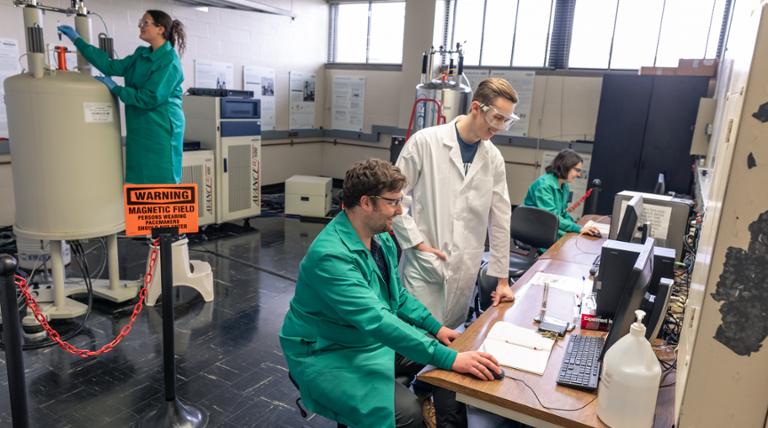
Research Areas & Facilities
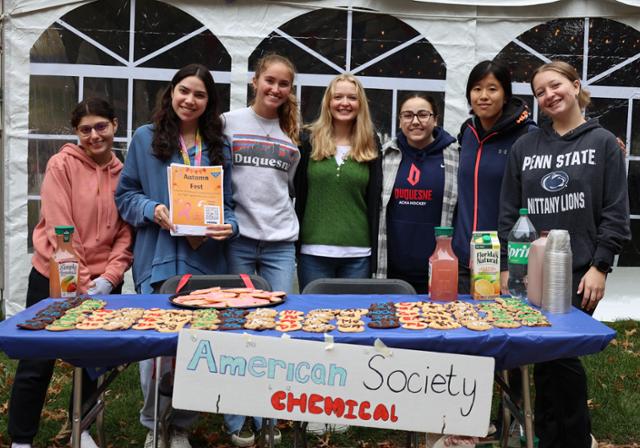
Student Organizations
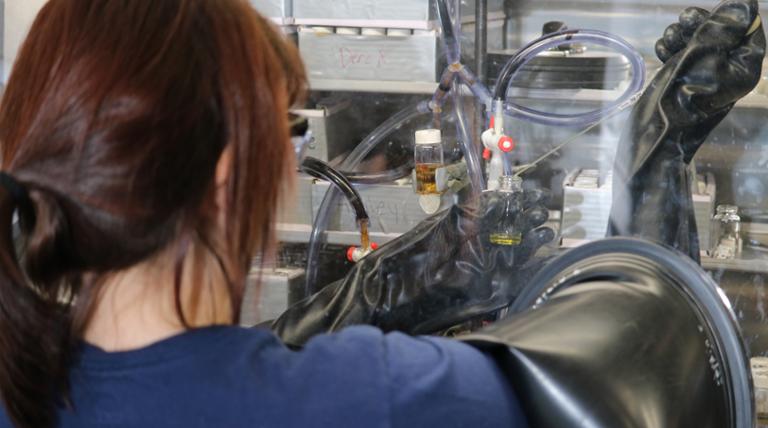
Summer Research Program
To assist students in achieving their academic goals within the B.S. in Biochemistry
program, we recommend the following course sequence. It is important to note that
BRDG courses can be completed in any order throughout the undergraduate curriculum,
allowing for greater flexibility in scheduling. Undergraduate research is highly encouraged. Our department recognizes the value of research and the significant contributions
it can make to the scientific community. To complete a minor in Biochemistry, you need to take the following courses: Students must take four advanced electives. One elective must be a biochemistry elective.
The second department elective may be a biochemistry or chemistry elective. The remaining
two electives may be chemistry, biochemistry, biology or math electives from the approved
lists. I can help you get started on your academic path. Please contact me if you have questions.Suggested Course Sequence
Spring Semester (16 credits)
Spring Semester (15 credits)
Spring Semester (12 credits)
Elective Offerings
I Can Help You Reach Your Bigger Goals!
Tiffany Kells
